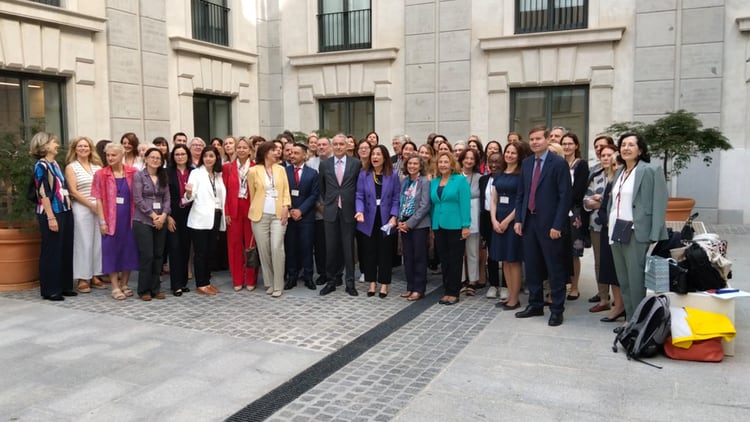Luis Ayllón
Issues related to pensions, health benefits and children’s mental health were the focus of discussion at the first meeting of the European Association of Families of Diplomats, which began yesterday in Madrid.
The meeting, organised by the Spanish Association of Families of Diplomats and Foreign Service Officers (AFD), was opened by the Under-Secretary of the Ministry of Foreign Affairs, Luis Cuesta, and was attended by representatives of most of the 24 associations from countries that are members, like Spain, of the European Association of Spouses, Partners and Families of Foreign Service Officers (EUFASA).
Opening the conference, which is held annually and which on this occasion takes place on the eve of Spain taking over the EU Presidency of the EU, Luis Cuesta, pointed out that, along with the advantages associated with a nomadic life, among which he cited the acquisition of a wider knowledge of the world and the learning of new languages, there are many costs “that have a direct impact,” he said, “on the lives of our spouses, partners and children”.
The Under-Secretary, who echoed the problems affecting them, recalled that “spouses and partners make great sacrifices to keep the family together and support their husband’s or wife’s work” and that this work “very often goes unnoticed or unappreciated”.
In addition, he cited the impact on the working lives of spouses, who have to “interrupt a promising career path, reinvent themselves in another field and sometimes risk losing social protection rights (health insurance, unemployment benefits, pension rights…)”.
After a reference to the impact of working in different countries on the children of civil servants abroad and their education, he alluded to the social and cultural changes experienced in European societies in recent decades. In particular, he said that emotional stability and mental health are at the forefront of the concerns associated with distance, separation and isolation that particularly affect people living far from their countries of origin and loved ones.
It was precisely the issue of mental health that Chencha García Cutillas, President of EUFASA and AFD, had referred to moments before, in her speech, who gave an account of the issues that were going to be addressed in the two days of the Conference.
In the first of the sessions, in the framework of mental health, the participants analysed proposals on the problems faced by children known as ‘Third Culture Kids’, referring to those who spend most of their schooling outside their parents’ country of origin.
A proposal on work and employment was also discussed, in which it was noted that in most EU countries, couples face problems with pensions and/or health benefits when they are posted abroad. This is an issue that, along with the difficulties of working abroad, has long been reported, at least in Spain, by relatives of diplomats and other civil servants serving abroad.





